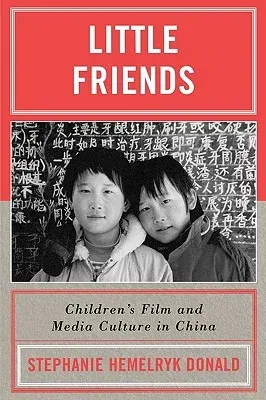Contributing to the growing debates on children and media worldwide,
Little Friends explores the pervasive presence of film culture in the
lives of children in China. The book also introduces the work of the
little-known Children's Film Studio and the Film Course, a reform-period
attempt by Chinese filmmakers and policy leaders to control the media to
which schoolchildren were exposed. Stephanie Donald uses expansive
firsthand interviews, children's drawings, and film history to tell a
compelling cinematic story before it is forgotten in the onrush of
globalized culture. She is especially careful to bring in the interests
and experiences of children themselves. The book follows the trajectory
of contemporary media analysis in privileging the use as well as the
content of media. The author's "turn" to the end-user enriches her
discussion of media literacy, cultural competencies, and--perhaps
especially in the Chinese case--consideration of the desired uses of
media in relation to state priorities and social expectations. This is a
trend that belongs to an era of digital experimentation and commercial
development; in interactive television, streamed news and entertainment,
and the multiple, unintended uses of Internet and mobile technologies.
Notwithstanding the contemporary context, Donald's arguments consider a
range of media deployment that, although not especially new in
technological terms, offer new insights into a formalized Chinese media
system for children. Scholars and students of Asian and children's film
and education will find this unique work a fascinating window into
Chinese culture and society and a provocative exploration of media
culture.


